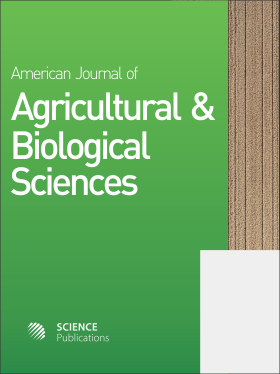Drying of Poultry Manure for Use as Animal Feed
- 1 Department of Process Engineering and Applied Science, Dalhousie University, Halifax, Canada
Abstract
The poultry industry is one of the largest and fastest growing sectors of livestock production in the world. The estimated 2010 world flock was over 18 billion birds with a yearly manure output of 22 million tonnes. Storage and disposal of raw poultry manure have become an environmental problem because of the associated air, water and soil pollution. Environmental and health problems such as odor and pathogens that may arise during and after land application of raw manure can be eliminated by drying. Dried manure can be utilized as a feed for ruminants because of its high nitrogen content. The aim of this study was to investigate the effects of drying temperature and depth, as well as the nutritional profile of dried manure and its suitability as an animal feed. Dried poultry manure contained sufficient levels of digestible energy, crude fiber, crude protein, crude fat, cobalt and iodine. Although dried poultry manure did not meet the dietary requirements for calcium, chloride, magnesium, phosphorus, potassium, sodium, copper, iron, manganese, selenium, sulfur or zinc it could be used as a feed stuff for ruminants after supplementation with the required nutrients. Heated air drying was most efficient at 60°C and at a depth of 3 cm. During drying poultry manure decreased in pH (8.4-6.9), protein content (43 to 39-43%) and amino acid content. The greatest reductions in microbial population occurred at the highest temperature (60°C) and the lowest manure depth (1cm). Reductions in the number of bacteria, mold/yeast and E. coli were 65-99, 74-99 and 99.97% respectively, Salmonellae was not detected in the dried product. Dried poultry manure was found to have a non-offensive odor. Odor intensity and offensiveness were reduced by 65 and 69% respectively during drying. Thin layer heated air drying of poultry manure between 40 and 60°C created a safe and nutritionally appropriate feed for ruminants.
DOI: https://doi.org/10.3844/ajabssp.2012.239.254

- 5,679 Views
- 22,705 Downloads
- 52 Citations
Download
Keywords
- Poultry Manure
- Drying
- Temperature
- Depth
- Moisture Content
- Pathogens
- Odor
- Protein
- Amino Acid
- Minerals
- Animal Feed
